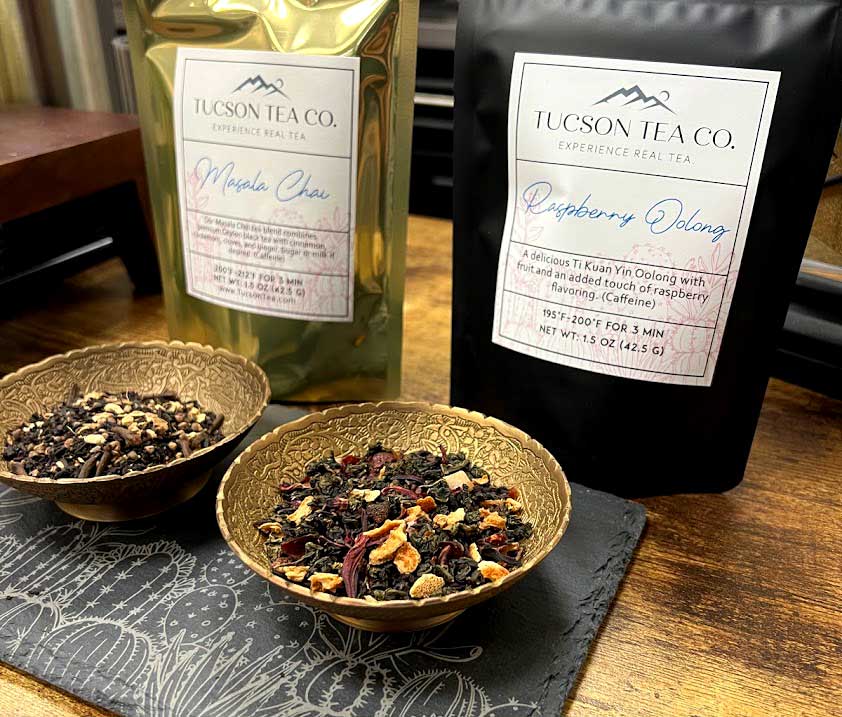
What are the different types of tea?
There are many different types of tea, including black tea, green tea, white tea, oolong tea, herbal tea, and more. These teas all come from the same plant, Camellia Sinensis, but they are processed differently, which gives them their unique flavors and aromas.
Here is a brief overview of some of the main types of tea:
- Black tea: Black tea is the most oxidized of all the teas, which gives it a strong, full-bodied flavor and a deep, amber-colored brew. Some popular types of black tea include Darjeeling, Assam, and Ceylon.
- Green tea: Green tea is the least oxidized of all the teas, which gives it a more delicate, slightly grassy flavor. It is also known for its high levels of antioxidants.
- White tea: White tea is the least processed of all the teas, and it is made from the young leaves and buds of the tea plant. It has a delicate, subtle flavor and is known for its high levels of antioxidants.
- Oolong tea: Oolong tea is a partially fermented tea that falls between black and green tea in terms of oxidation. It has a complex, floral flavor and is often used in traditional Chinese tea ceremonies.
- Herbal tea: Herbal tea is made from a variety of plants, herbs, and spices, and does not contain any tea leaves. It can be made from a single ingredient or a blend of ingredients, and it can have a wide range of flavors and aromas.
There are many other types of tea as well, including yellow tea, pu'erh tea, and more. Each type of tea has its own unique flavor and characteristics, and many people enjoy exploring and trying different types of tea.
What affects tea flavor?
The flavor of tea can vary greatly depending on the type of tea and the way it is processed and brewed. Here are a few factors that can affect the flavor of tea:
- Oxidation: The oxidation process, which occurs when the tea leaves are exposed to the air, plays a major role in the flavor of the tea. Black tea is the most oxidized, which gives it a strong, full-bodied flavor. Green tea is the least oxidized, which gives it a more delicate, slightly grassy flavor. Oolong tea is partially fermented, which gives it a complex, floral flavor.
- Growing conditions: The flavor of tea can also be influenced by the climate, soil, and altitude where it is grown. Tea plants grown in different regions can have distinct flavors, and the same tea plant grown in different regions can have different flavors.
- Processing: The way the tea leaves are processed also plays a role in the flavor of the tea. For example, rolling and shaping the tea leaves can affect the flavor, as can the way the tea is fired or dried.
- Brewing: The way the tea is brewed can also affect its flavor. The temperature and steeping time of the water, as well as the type of water used, can all influence the flavor of the tea.
Overall, there are many factors that can affect the flavor of tea, and each type of tea has its own unique characteristics. Many people enjoy exploring and trying different types of tea to discover their individual flavors and aromas.
Health benefits of loose-leaf teas by type
There are many potential health benefits associated with different types of tea. Here is a brief overview of some of the potential health benefits of some common types of tea:
- Black tea: Black tea is a good source of antioxidants and may help to improve heart health, lower blood pressure, and reduce the risk of stroke. It may also help to improve mental alertness and cognitive function.
- Green tea: Green tea is high in antioxidants, and it has been shown to help with weight loss, improve heart health, and reduce the risk of certain types of cancer. It may also help to improve mental alertness and cognitive function.
- White tea: White tea is high in antioxidants and may have anti-aging properties. It may also help to improve heart health and reduce the risk of certain types of cancer.
- Oolong tea: Oolong tea is high in antioxidants and may help to improve heart health, lower blood pressure, and reduce the risk of stroke. It may also help to improve mental alertness and cognitive function.
- Herbal tea/Tisanes: The health benefits of herbal tea, or tisanes, will depend on the specific herbs and spices used in the tea. Some herbal teas, such as chamomile tea, may help to promote relaxation and sleep, while others, such as ginger tea, may help to reduce nausea and vomiting.
It is worth noting that more research is needed to fully understand the potential health benefits of different types of tea, and tea should not be used as a replacement for a healthy diet and lifestyle. It is also important to note that some types of tea, especially those that are high in caffeine, can have side effects if consumed in excess.
